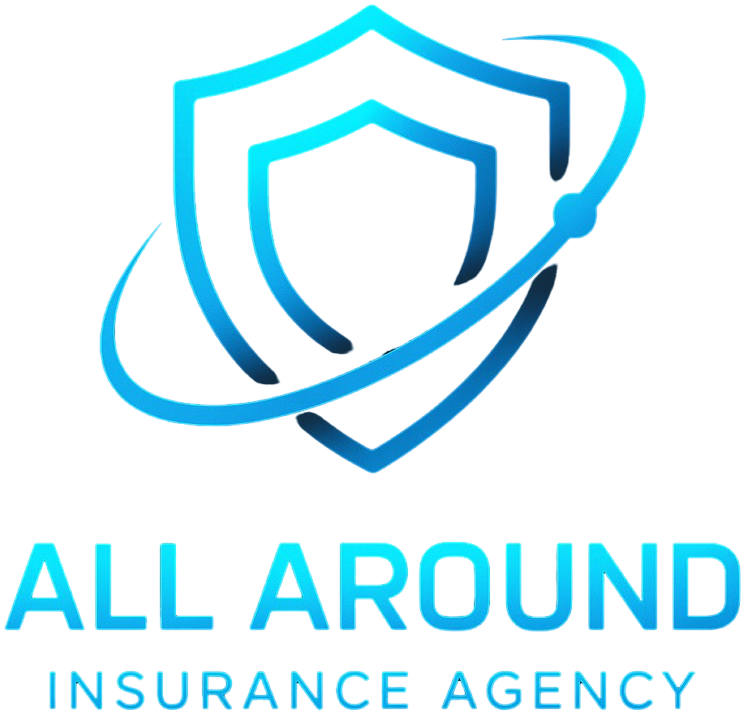What to Do (and Not Do) After a Car Accident: An Insurance Perspective
Car accidents can be overwhelming, whether it’s a minor fender-bender or a more serious collision. In the heat of the moment, emotions run high, and it’s easy to forget the steps you should take to protect yourself — not only physically, but legally and financially. From an insurance perspective, what you do immediately after an accident can have a significant impact on how smoothly your claims process goes, how much you recover, and how well your coverage protects you.
At All Around Insurance Agency, we want you to feel prepared and empowered. Here’s a comprehensive guide on what to do and not do after a car accident.
What to DO After a Car Accident
1. Check for Injuries and Prioritize Safety
Your safety — and the safety of others — comes first. Check yourself and your passengers for injuries. If anyone is hurt, call emergency services immediately.
If the accident is minor and your vehicle is drivable, move it to the side of the road to avoid blocking traffic. Turn on your hazard lights to alert other drivers.
2. Call the Police
Even if the accident seems minor, it’s a good idea to call the police. A police report provides an official record of the incident, which your insurance company will likely request when you file a claim.
Be honest and factual when speaking to officers, but avoid admitting fault at the scene — let the investigation and your insurance companies determine liability.
3. Exchange Information
Gather the following information from all involved parties:
- Full names and contact details
- Driver’s license numbers
- License plate numbers
- Insurance provider names and policy numbers
- Make, model, and year of all vehicles involved
Also, collect contact information from any witnesses, as their statements may be helpful later.
4. Document the Scene
Use your phone to take clear photos and videos of:
- Vehicle damage (yours and others)
- The accident scene (including traffic signals, signs, and skid marks)
- Any visible injuries
- The positioning of the vehicles involved
These images may become crucial when filing your insurance claim or if legal disputes arise.
5. Notify Your Insurance Company Promptly
Contact your insurance provider as soon as possible — ideally within 24 hours of the accident. Be ready to provide:
- Your policy number
- Basic details of the accident (time, location, and what happened)
- Any photos or witness information you collected
The faster you report the incident, the faster your claims process can begin.
6. Seek Medical Attention
Even if you feel fine, some injuries (like whiplash or concussions) can take hours or days to show symptoms. It’s wise to see a doctor after the accident to rule out any hidden issues — and create a medical record in case your injuries need to be included in the claim.
What NOT to Do After a Car Accident
1. Don’t Admit Fault
It’s human nature to want to apologize after an accident — even when it’s not your fault. But statements like “I’m sorry” or “I didn’t see you” can be interpreted as admissions of liability.
Stick to the facts. Let the police and insurance companies determine who’s responsible.
2. Don’t Leave the Scene
Leaving the scene of an accident without exchanging information or calling the authorities can be considered a “hit and run,” which is a serious legal offense. Even if the damage seems minor, stay until everything is properly documented.
3. Don’t Forget to Gather Evidence
Failing to collect photos, witness info, and police details could weaken your insurance claim. Documentation helps protect you from false claims and disputes later on.
4. Don’t Delay Medical Attention
Waiting too long to see a doctor can not only worsen potential injuries — it can also undermine your claim. Insurance companies might argue that your injuries aren’t related to the accident if there’s a gap between the incident and your medical visit.
5. Don’t Accept Immediate Settlement Offers
If the other driver’s insurance company contacts you and offers a quick settlement, be cautious. These offers are often lower than what you’re entitled to. Don’t sign anything or accept money without first consulting with your own insurance provider or legal counsel.
Final Thoughts
Accidents happen — and while you can’t always control when or where, you can control how prepared you are. The right actions (and avoiding the wrong ones) make all the difference when it comes to protecting yourself, your passengers, and your financial future.
At All Around Insurance Agency, our experienced team is here to guide you through the claims process and ensure you have the coverage you need before you need it. Whether it’s auto, home, life, or business insurance, we help our clients stay protected from life’s unexpected turns.
Need help reviewing your auto insurance policy?
Contact All Around Insurance Agency today — and drive with confidence knowing you’re in good hands.
